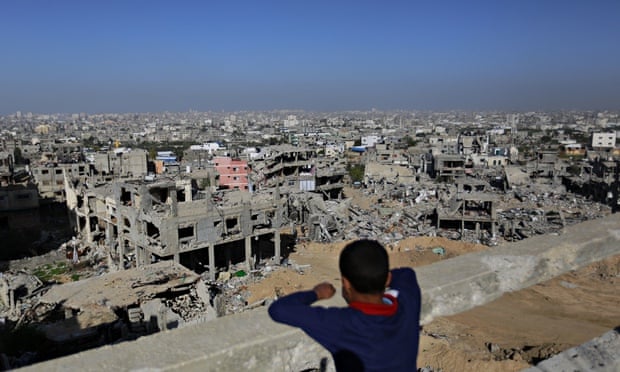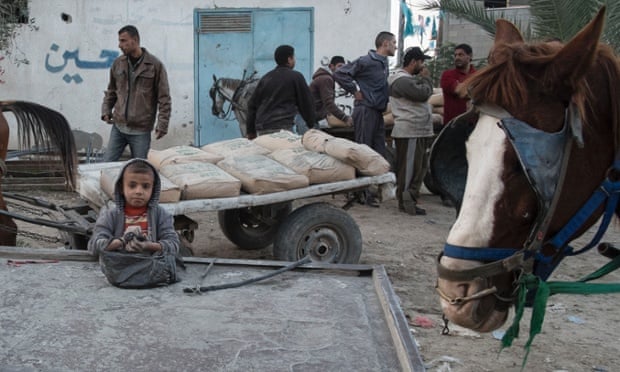Great comment by MIDEASTERNIST
I consistently grapple with writing on Syria because in all honesty, why bother? Everyone’s already come to their own conclusions. Everyone’s found the narratives that are convenient to their constructs. Put simply: everyone thinks they’ve got Syria all figured out. No one bothers listening to the Syrians speak for themselves. Syrian voices are drowned out by the experts, op-ed writers, and the talking heads.
In March it’ll be 4 years. Time has effectively escaped us as we’ve mourned day after day, month after month, year after year for a country destroyed by overlapping wars for power, hegemony, and greed. We’ll continue to mourn, but we’ll also remember. We won’t forget.
We’ll remember the long forgotten chants of the people in all their glory paired with their screams, their agony, and pain. Long forgotten by the world is Syria’s struggle. But we’ll remember and we’ll mourn. We won’t forget.
In the beginning, Syrians marched endlessly. Day in and day out. From the alleyways of Old Homs to the open spaces of Hama and across the Hauran Plains. They came out in small numbers at first. The security forces shot and arrested those early protestors as much as they could and yet thousands upon thousands emerged. Many have forgotten what it looked like, forgotten its chants for freedom, dignity, and unity.
“The Syrian people are one..one..one…”, was one such chant for unity as outside observers critiqued the nascent opposition for not appealing to minorities, barely hiding their own sectarianism.
Many forget the regime killed thousands before anyone seriously lifted a finger against it. They forget the massive displays of non-violence in Hama, Homs, Damascus, and Aleppo. And others know this full well and choose to ignore facts. Facts are lies from Qatar by way of Israel, anyway.
Syria’s early intifada for freedom was inconvenient for a diverse group. Even Syria’s “friends” were and continue to be inconvenienced by Syria’s struggle. Many of Syria’s Arab “brethren” found freedom in Syria inconvenient as well. Some sent money to lure Syrians away from their original path. While others sent fighters to stand directly in their way as they struggled to resist against an increasingly brutal regime.
Peaceful revolution thwarted. Armed revolution stunted. Lives shattered. Homes lost. Resisting oppression is too controversial, though. Too difficult for even some of the brightest to grasp despite its infinite simplicity.
They’d rather be comfortably and conveniently silent, pretending nothing was happening. Plenty has happened, however. And had they spoken up in the past, Syria would be in a very different place. But, again, too inconvenient. Too inconvenient to stand up for the rights of your fellow human being. Too inconvenient to say enough of the tyranny and systemic murder.
After all, the west is behind the Syrian opposition, they said. America is backing the rebels, they said. What they didn’t realize is that America hurt far more than it ever helped. Syrians abandoned by their neighbors in their time of need resorted to asking imperialist powers for help in their desperation. And for this they were blamed again.
The regime was once again hailed as an “anti-imperialist” hero when it was in fact working with these powers all along. Regime self-preservation is Assad’s number one goal – not resisting against the Zionist usurpation of indigenous, Palestinian land – or even Syrian land, for that matter. But faux anti-imperialism will remain the regime’s bread and butter.
What does matter is this: 4 years later Syrians are no closer to achieving their rights to freedom and dignity. No longer do they have one oppressive force standing in their way – they have several. And the key to ridding Syria of the latter is getting rid of the former.
Through its wanton oppression, the Assad regime gave way to the rise of Jabhat AlNusra, ISIS, and authoritarian Islamist factions. The power vacuum that developed between 2012 and 2013 saw the rise of corrupt factions of the Free Syrian Army – some of which continue to plunder villages across several provinces today. All of this has worked in Assad’s favor, ironically convincing ordinary people that the only “stable” option for Syria is Assad, despite being the main cause behind Syria’s instability.
The Assad regime also introduced an occupation by Hezbollah, Iraqi Shiite militias, and even the Iranian Revolutionary Guards to fight alongside the Syrian military, attempting to halt the advance of the opposition which had taken nearly half the country. These interventions have been successful in many areas, but their repercussions are far deeper.
While these interventions were largely politically motivated, they exacerbated already existing sectarian tensions. These tensions went through the proverbial roof as a result and the ranks of the most hardline and sectarian groups began to swell. Sectarian language now resonated with many young men who had formerly held true to the Syrian revolution’s original goals. The groups also saw an uptick in their funding from the Gulf Arab donors – which did wonders as secular and moderate groups struggled to equip fighters with weapons and ammo.
By 2013, the opposition stronghold of Aleppo had also become a center for ISIS activity as they were an ascending force that hadn’t yet showed its true nature despite the suspicions around it. ISIS would constantly harass civil society activists for their work organizing and speaking out against the group, effectively warning ISIS was Assad-reincarnate in rebel-controlled areas. ISIS responded by either running them out of town, arresting them for several days, or disappearing them completely.
One such activist, AbdulWahab AlMulla, was a resident of Saudi Arabia prior to the revolution and originally from Aleppo’s AlBab district. AbdulWahab, who would come to be known as “Abu Staif”, left everything for Aleppo in 2012 after the opposition took half the city in mid-2012. In Aleppo he became part of the armed resistance but realized his calling was in media. After recording several revolutionary songs from Aleppo’s frontlines, alMulla started his own TV program based in rebel-controlled Aleppo which he broadcast on Youtube with the help of fellow activists.
On “3 Star Revolution” AlMulla discussed real issues that affected people in Aleppo and across Syria, infusing his humor and vibrancy into the show. He became well-known throughout Aleppo and eventually outside opposition channels picked up his show, broadcasting daily during Ramadan.
In the last episode AlMulla discussed the difference between a religious-based state and civil state, something Syrians continue to debate and discuss to this day. AlMulla believed in free speech and the right of every Syrian to discuss sensitive issues openly. And for that alMulla was disappeared. The majority consensus says ISIS is behind his kidnapping. No news of Abu Staif since then.
Another symbol of revolution and positive change stolen from Syrians too soon.
What’s left of Syria’s revolution fades with every passing day – along with the international community’s ability to remember and care for Syrians both inside and out.
Syrian resolve and resiliency remains, however. Be certain of this.
And know that if the war ends today or tomorrow or even the day after Syria’s struggle for freedom and dignity will continue.

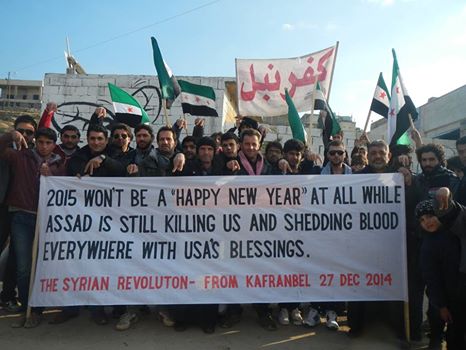


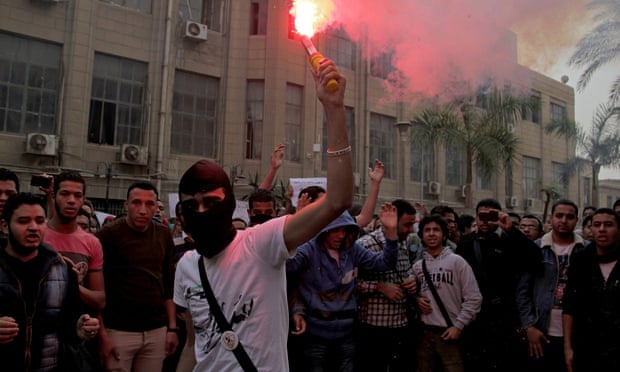
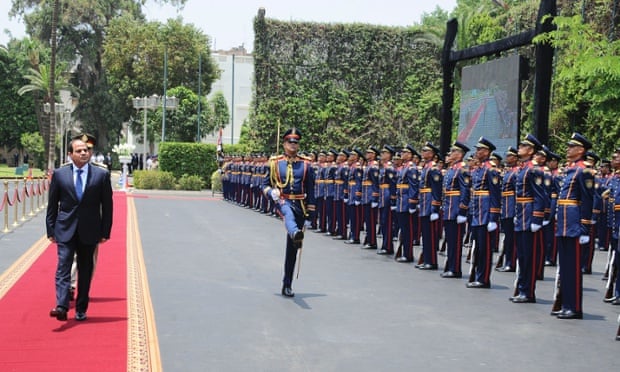
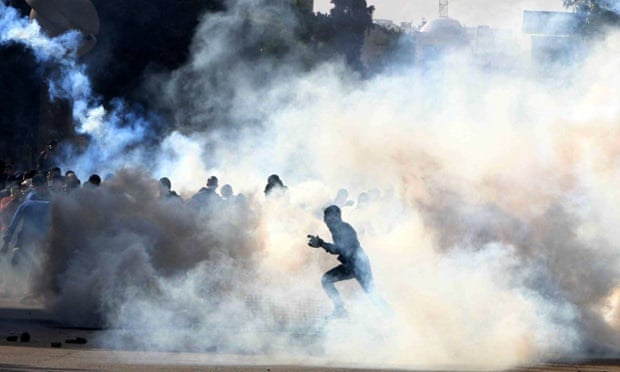
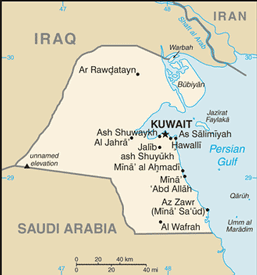 Instead,
Instead, 